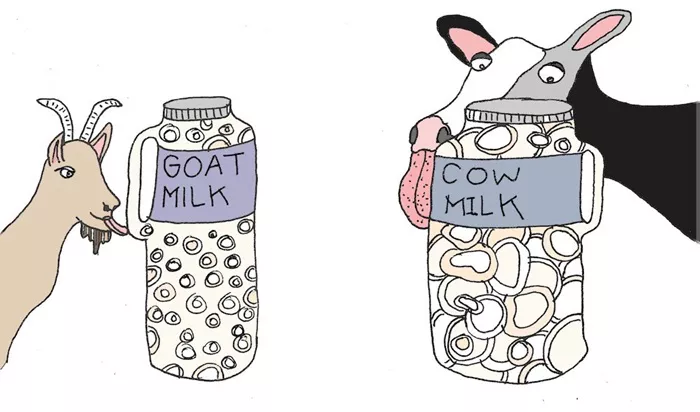Recent research has drawn attention to the potential health benefits of camel, cow, and goat milk, particularly in the management of diabetes and cardiovascular disease (CVD). A review published in Nutrients analyzed the nutritional profiles of these three types of milk, evaluating their effectiveness in combating chronic diseases.
Global Health Impact of Diabetes and Cardiovascular Disease
Cardiovascular disease remains one of the leading causes of death worldwide, especially among individuals with diabetes. The coexistence of diabetes and CVD nearly doubles mortality risk and shortens life expectancy by up to 12 years. In 2019, CVD accounted for 32% of global deaths, primarily due to heart attacks and strokes. As the prevalence of diabetes continues to rise, the importance of dietary interventions in managing these diseases becomes ever more crucial.
Camel Milk: A Unique Nutritional Profile
Camel milk, a staple in the Arabian Gulf and other arid regions, is gaining recognition for its potential therapeutic benefits. Known as “white desert gold,” camel milk is valued for its bioactive compounds, including insulin-like proteins, vitamins, minerals, and unsaturated fatty acids. These elements make camel milk a promising option for managing diabetes and cardiovascular health.
Health Benefits of Camel Milk
Recent studies have highlighted camel milk’s hypoglycemic effects, which support blood sugar control. Unlike cow milk, camel milk contains bioactive elements that may help reduce blood glucose levels and improve insulin sensitivity, making it beneficial for diabetes management. Additionally, camel milk boasts antioxidant, anti-inflammatory, and lipid-lowering properties that may contribute to cardiovascular health.
Comparative Nutritional Profiles
While cow and goat milk are also nutritious, their effects on metabolic health differ. Cow milk’s higher lactose content may not be ideal for people with diabetes, as it can raise blood sugar levels. Goat milk, on the other hand, is highly digestible and known for its antihypertensive properties, making it a good option for individuals with high blood pressure or lactose intolerance.
Camel milk stands out due to its balanced nutrient profile, including a lower lactose content and a higher concentration of insulin-like proteins, offering advantages in glycemic control and cardiovascular health.
Camel Milk and Diabetes
Camel milk’s insulin-like proteins play a pivotal role in regulating blood sugar by enhancing glucose absorption and promoting lower blood glucose levels. This makes it an effective tool for people with diabetes. The milk’s antioxidant properties also protect against oxidative stress, further supporting cardiovascular health by reducing the risk factors associated with CVD.
Other Health Benefits of Camel Milk
Beyond its potential to manage chronic diseases, camel milk contains antimicrobial proteins, such as lysozyme and lactoferrin, which contribute to immune health. These proteins also give camel milk a longer shelf life compared to cow milk, making it particularly useful in regions where refrigeration may be limited.
Camel milk’s hypoallergenic properties make it a good alternative for individuals with milk allergies, particularly for infants, as it closely resembles human breast milk and lacks β-lactoglobulin, a common allergen in cow milk.
Goat Milk as an Alternative
Goat milk offers its own unique set of benefits. Known for its digestibility, it contains bioactive peptides and medium-chain fatty acids that contribute to better insulin sensitivity. Goat milk’s lower lactose content makes it suitable for those with lactose intolerance, and its antihypertensive and anti-inflammatory properties support overall metabolic health.
Conclusion
In conclusion, while all three types of milk—camel, cow, and goat—offer nutritional benefits, camel milk stands out for its unique composition that supports both diabetes management and cardiovascular health. Its insulin-like proteins and antioxidant properties make it particularly effective for individuals with diabetes or lactose intolerance.
Goat milk also holds promise, especially for those looking for a highly digestible option with beneficial effects on blood pressure and insulin sensitivity. Cow milk, though higher in lactose, still provides essential nutrients like calcium and protein, making it a beneficial option for cardiovascular health.
As research continues, camel milk emerges as a strong contender for chronic disease management, particularly for those affected by diabetes and CVD.
Related Topics
Experts Highlight Link Between Air Pollution and Rising Pneumonia Cases in Delhi
Top 14 Supplements to Safely Boost Your Energy Levels
Maternal Vitamin D Intake Can Strengthen Children’s Bones, Even at Age 7


































